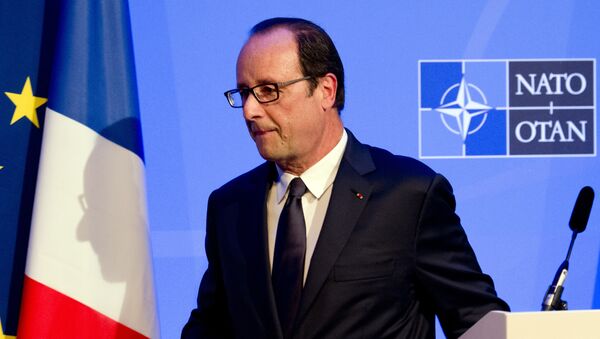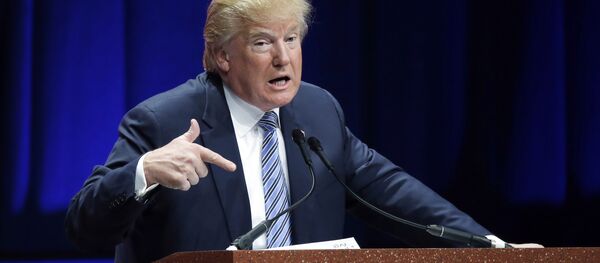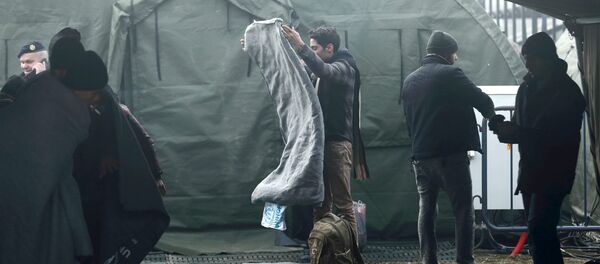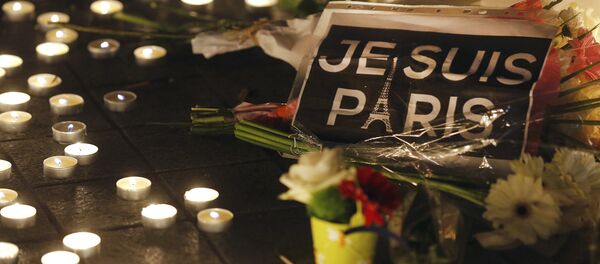"Paris would be within its rights to expect NATO to play a meaningful role in organizing a significant military response to the attacks," he wrote in the American international affairs magazine Foreign Policy.
Article 5 of the Treaty states that “[a]n armed attack against one or more of [the Parties] in Europe or North America shall be considered an attack against them all and consequently they agree that, if such an armed attack occurs, each of them, in exercise of the right of individual or collective self-defense recognized by Article 51 of the Charter of the United Nations, will assist the Party or Parties so attacked.”
If invoked, the article would require other members to respond to the violence in France as if it had taken place in their own countries.
The US is the only nation to have ever invoked Article 5 support in response to an act of terrorism: it did so after the events of September 11, 2001.
"The terrorist attacks — assuming that the Islamic State is, in fact, responsible for them — are the culmination of a long-running humanitarian disaster in Syria that has destabilized the Middle East and initiated the flow of millions of refugees into the heart of Europe. NATO can no longer pretend the conflict does not affect its most basic interests," Stavridis says.
However, Chris Chivvis, the associate director of the International Security and Defense Policy Center at the RAND Corporation, believes that based on past precedent in northern Africa, France could opt to go with a coalition of the willing to respond to the attacks rather than working through NATO.
According to the Lawfare blog, the United States presumably sought NATO support for two reasons: legitimacy and pragmatism.
“First, being able to point to NATO’s conclusion that the United States had suffered an armed attack strengthened the US argument that it had a right to use force in self-defense under UN Charter article 51 against a non-state group,” the author reasons.
“Second, although the US did not turn to NATO for military support for its initial operations in Afghanistan (which it and the UK conducted under Operation Enduring Freedom), NATO did subsequently assist in bringing stability first to Kabul and then to larger swaths of Afghanistan.”
“France is differently situated today,” it says.
“First, at this point many states clearly believe that a state can suffer an armed attack from and be in an armed conflict abroad with a non-state actor.”
Further, from a pragmatic perspective, a significant number of NATO member states already are involved in anti-ISIL operations in Iraq, Syria, or both, including the US, UK, France, Turkey, Belgium, Canada, Denmark, and the Netherlands.
The most significant NATO state that is not participating in those operations is Germany, although that may change now, whether or not France seeks to trigger Article 5.
Nevertheless, there are advantages to compelling NATO's member states to launch a military response, it reasons. Unless France is worried that its NATO partners will not be willing to treat Friday’s violence in Paris as an armed attack, France may well seek NATO participation.
Furthermore, involving NATO may provide a boost to an institution that has been casting about in recent years for a raison d’etre.
Involving Russia
If France opts to turn to NATO, Stavridis says, a major NATO mission against the Islamic State would consist of a number of smaller, practical steps.
Among others, its key initiative would be to “build an ‘open coalition,’ one that can not only include the forces of traditional allies, but also those of NATO’s traditional adversary, Russia.”
“The Russian government claims to want to defeat the Islamic State, and it should have no lack of motivation, given the over 200 dead citizens — including many women and children — who seem to have been massacred by the Islamic State in the downing of a civilian aircraft just two weeks ago. Russia should be invited to participate alongside NATO and other coalition members against the Islamic State. “
If the French seek strong NATO participation in a broad and lethal campaign against the Islamic State, he adds, Americans must offer support.
"They would be following the example set by the French on behalf of the United States after 9/11, and, in an earlier century, during the American Revolutionary War".





